#Afghanistan war
Photo

NATO soldiers killed in the War in Afghanistan, 2001-2021
62 notes
·
View notes
Text


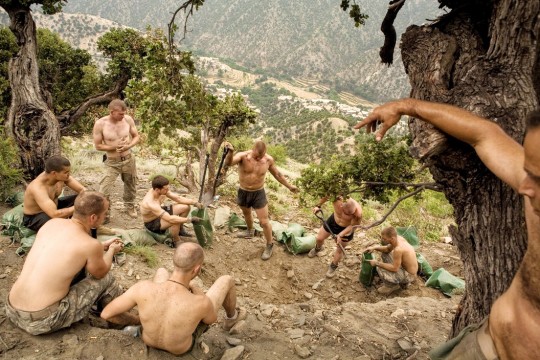


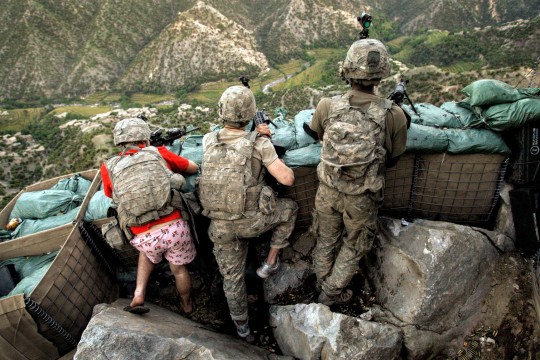


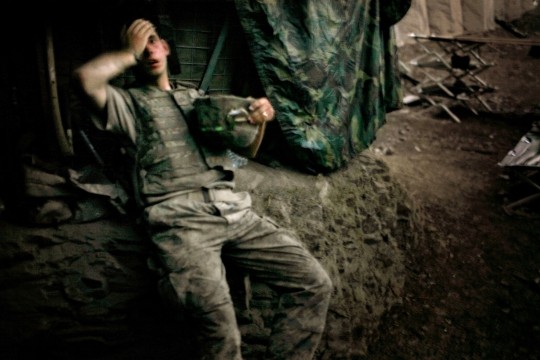
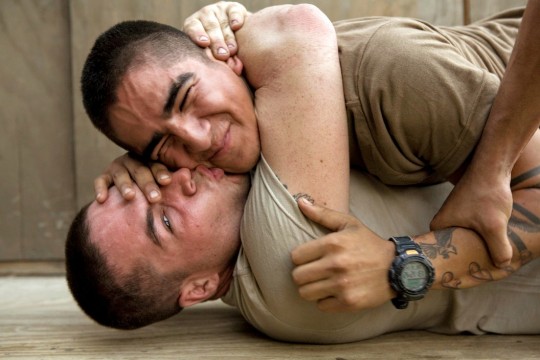
Restrepo (2010; documentary by Sebastian Junger and Tim Hetherington.)
#tim hetherington#photography#afghanistan war#journalism#war#sebastian junger#soldiers#film#2000s#men#veterans#people#movies#cinema#documentary#photos#us army#military#history#cinematography#afghanistan#restrepo#🎬#korengal valley 2007 2008
53 notes
·
View notes
Text

Reminder that SNL has always been an islamophobic trashfire:

(Source)
(Source)
#free palestine#palestine#islamophobia#afghanistan war#western liberalism#us propaganda#racism#double standards#anti snl
81 notes
·
View notes
Text
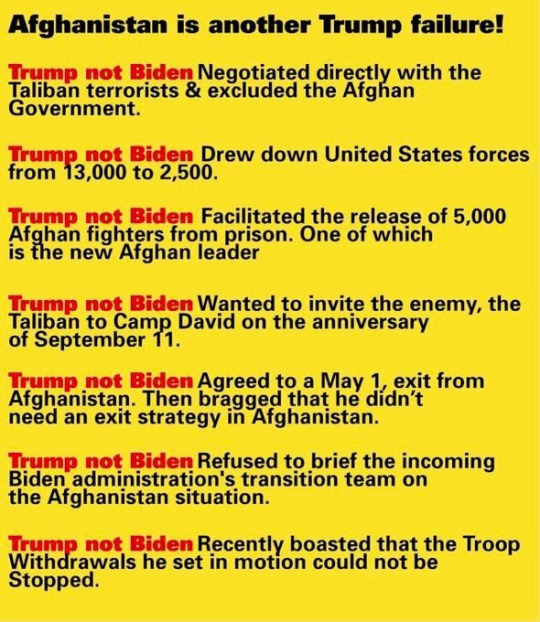
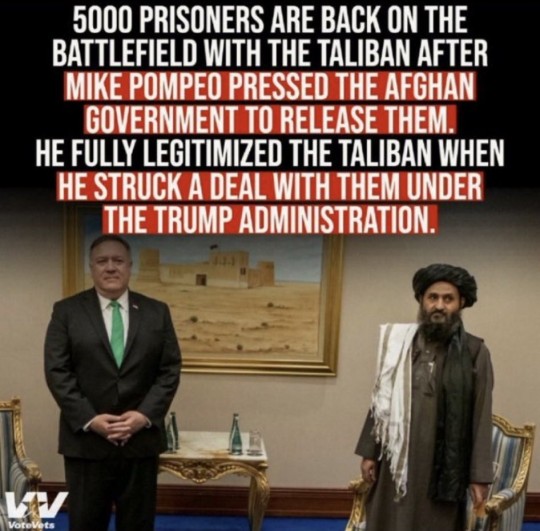
#us politics#2021#afghanistan war#afghan crisis#afghanistan withdrawal#Afghanistan#republicans#conservatives#gop#donald trump#trump administration#mike pompeo#taliban#fact check#biden administration#troop withdrawals#camp david
35 notes
·
View notes
Video
Video via No Context Governmen’t (@devletagliyor) on Twitter
[Video description: Clips of George W. Bush, Iraqis and fallout from the Iraq war, and Iraq veteran and anti-imperialist activist Michael Prysner’s confrontation of Bush at a talk of his in 2021. Captions appear in the center of the screen.]
In 2002, George Bush said of Saddam Hussein:
“I remember the fact that he has invaded two countries before. I know for a fact that he's poisoned his own people. He doesn't believe in the worth of each individual. He doesn't believe in public dissent.”
A year prior to this statement the president had led the invasion of Afghanistan, and a year after he led the invasion of Iraq. After 9/11, hate crimes against Muslims spiked by 500%. Thousands of Muslim noncitizens were arrested and many of them were imprisoned in secret, barred from accessing legal counsel, or tried entirely in secret. While the bill to initially Afghanistan did win a vote by the House of Representatives by an overwhelming majority, and in response “tens of thousands of people went into the streets in cities across this country to call for [the war] to stop even before it began”. The war continued for 21 years, despite the protests against it by several grassroots organizations across the country.
The year he gave this speech, president Bush also called for Saddam Hussein to face the death penalty for his violation of human rights. According to Human Rights Watch, the casualties under Hussein were between 250,000-290,000 lives. According to a study by ORB International in 2008, the total casualties in the Iraq war after 2003 were between 946,000 and 1,120,000.
Bush clearly believes in the idea of capital punishment and a life for a life—after all, under his watch as governor of Texas, 144 inmates were executed under the death penalty—but one might wonder what would happen to him if everyone followed those standards.
183 notes
·
View notes
Text

Younger Balalaika
48 notes
·
View notes
Text
Wow
The way tumblr leftists joke about 9/11 is sickening.
I say this as an Arab American who was born in Manhattan in the 90s. So 9/11 and the Iraq War were 2 tragedies that hit home. Yeah Bush, Cheney, Rumsfield and all those other evil Republican dipshits deserve no sympathy. But their shitty actions don't justify the terrorist attack that killed civilians just as how their shitty middle eastern foreign policy does not justify the deaths of Iraqi and Afghani civilians.
Learn to separate politicians and civilians. 9/11 was an awful tragedy just as much as the wars in Iraq and Afghanistan were.
10 notes
·
View notes
Text

Fourteen Republican Senators, including Mitt Romney and Rand Paul, have voted against providing healthcare and benefits to US veterans who came home from America’s post-9/11 wars sick and dying from rare cancers and respiratory illnesses.
On Thursday, the Senate passed the SFC Heath Robinson Honoring Our PACT Act – a landmark bill that will presumptively link 23 conditions to a veterans’ exposure to burn pits while on deployment overseas.
Now, around 3.5 million US veterans who lived and worked next to the huge open-air pits will finally be given automatic access to healthcare and disability benefits if they develop one of these conditions on their return home.
The bill sailed through the Senate with largely bipartisan support, with 84 Senators voting in favour of its passage.
All Democrats voted yes to passing the bill – but 14 Republicans voted no.
The senators who voted against were: Mitt Romney and Mike Lee of Utah, Rand Paul of Kentucky, Richard Burr and Thom Tillis of North Carolina, Mike Rounds and John Thune of South Dakota, Richard Shelby and Tommy Tuberville of Alabama, James Lankford of Oklahoma, Cynthia Lummis of Wyoming, and Mike Crapo and James Risch of Idaho.
Senators Steve Daines and Roger Wicker were absent from the vote.
Despite the efforts of the 14 Republicans, the bill is likely just days away from being signed into law.
It first needs to go back to the House for passage before it can be sent to the desk of President Joe Biden.
However, passage in the House is almost certain as all Democrats and 34 Republicans voted in favour of its passage back in March, sending it sailing over the threshold with a 256 to 174 vote.
In that vote, the only lawmakers voting no were also Republicans.
Among them was Rep. Lauren Boebert, who was slammed for heckling as Mr. Biden spoke about burn pits in his State of the Union address.
The Senate has modified the House version to create a phase-in period for illnesses presumptively linked to toxic exposure, meaning a new vote is needed in the House.
During America’s post-9/11 wars in Iraq and Afghanistan, huge open-air pits were used to burn mountains of trash including food packaging, human waste and military equipment on US military bases.
Thousands of US service members returned home from deployment and developed health conditions including rare cancers, lung conditions, respiratory illnesses and toxic brain injuries caused by breathing in the toxic fumes from the pits.
But, until now, the burden of proof has always been on veterans to prove their condition is directly caused by this toxic exposure and almost 80 percent of disability claims mentioning burn pits were turned down by the Department of Veteran Affairs.
The bill was renamed in March after the Sgt First Class Heath Robinson who died in May 2020 from a rare cancer caused by breathing in toxic fumes from burn pits while serving in Iraq in the Ohio National Guard. He was 39.
Two years on from his death, the bill passed on his daughter Brielle’s ninth birthday.
Susan Zeier, his mother-in-law, said that the bill’s passage means she now no longer needs to “carry Heath on my shoulders”.
Ms. Zeier gave an emotional speech outside the Capitol after Thursday’s vote where she told how she has been wearing her son-in-law’s army jacket for the past four years to draw attention to the plight of veterans fighting for healthcare and disability access as she and other advocates lobbied the US government.
“I’ve been wearing this since the summer of 2018 and today, with this bill passing the Senate, I think it’s time to retire it,” she said.
“I no longer have to carry Heath on my shoulders while I’m advocating for all the other veterans who are out there sick and dying.”
Ms. Zeier described her son-in-law as a “wonderful father” who was “always helpful and always generous” and fought his cancer “valiantly” to “survive as long as he could for his daughter”.
#president joe biden#biden administration#burn pits#us military#iraq war#afghanistan war#war on terror#cancer#the independent#department of veterans affairs#SFC Heath Robinson Honoring Our PACT Act#us senate#sen. mitt romney#sen. mike lee#sen. rand paul#sen. Richard Burr#sen. Thom Tillis#sen. Mike Rounds#sen. john thune#sen. Richard Shelby#sen. tommy tuberville#sen. James Lankford#sen. Cynthia Lummis#sen. Mike Crapo#sen. James Risch#sen. Steve Daines#sen. Roger Wicker#2022#lindy li#us politics
113 notes
·
View notes
Text
Arundati Roy writing in The Guardian against the Afghanistan War on October 2001
“Brutality smeared in peanut butter”
Why America must stop the war now.
By Arundhati Roy
Tue 23 Oct 2001 • 00.57 • BST •
-------------------------------------------
As darkness deepened over Afghanistan on Sunday October 7 2001, the US Government, backed by the International Coalition Against Terror (the new, amenable surrogate for the United Nations), launched air strikes against Afghanistan. TV channels lingered on computer-animated images of cruise missiles, stealth bombers, tomahawks, "bunker-busting" missiles and Mark 82 high drag bombs. All over the world, little boys watched goggle-eyed and stopped clamouring for new video games.
The UN, reduced now to an ineffective acronym, wasn't even asked to mandate the air strikes. (As Madeleine Albright once said, "We will behave multilaterally when we can, and unilaterally when we must.") The "evidence" against the terrorists was shared amongst friends in the "coalition".
After conferring, they announced that it didn¹t matter whether or not the "evidence" would stand up in a court of law. Thus, in an instant, were centuries of jurisprudence carelessly trashed.
Nothing can excuse or justify an act of terrorism, whether it is committed by religious fundamentalists, private militia, people's resistance movements – or whether it's dressed up as a war of retribution by a recognised government. The bombing of Afghanistan is not revenge for New York and Washington. It is yet another act of terror against the people of the world.
Each innocent person that is killed must be added to, not set off against, the grisly toll of civilians who died in New York and Washington.
People rarely win wars, governments rarely lose them. People get killed.
Governments moult and regroup, hydra-headed. They use flags first to shrink-wrap people's minds and smother thought, and then as ceremonial shrouds to bury their willing dead. On both sides, in Afghanistan as well as America, civilians are now hostage to the actions of their own governments.
Unknowingly, ordinary people in both countries share a common bond - they have to live with the phenomenon of blind, unpredictable terror. Each batch of bombs that is dropped on Afghanistan is matched by a corresponding escalation of mass hysteria in America about anthrax, more hijackings and other terrorist acts.
There is no easy way out of the spiralling morass of terror and brutality that confronts the world today. It is time now for the human race to hold still, to delve into its wells of collective wisdom, both ancient and modern. What happened on September 11 changed the world forever.
Freedom, progress, wealth, technology, war – these words have taken on new meaning.
Governments have to acknowledge this transformation, and approach their new tasks with a modicum of honesty and humility. Unfortunately, up to now, there has been no sign of any introspection from the leaders of the International Coalition. Or the Taliban.
When he announced the air strikes, President George Bush said: "We're a peaceful nation." America¹s favourite ambassador, Tony Blair, (who also holds the portfolio of prime minister of the UK), echoed him: "We're a peaceful people."
So now we know. Pigs are horses. Girls are boys. War is peace.
Speaking at the FBI Headquarters a few days later, President Bush said: "This is our calling. This is the calling of the United States of America. The most free nation in the world. A nation built on fundamental values that reject hate, reject violence, rejects murderers and rejects evil. We will not tire."
Here is a list of the countries that America has been at war with – and bombed – since the Second World War: China (1945-46, 1950-53), Korea (1950-53), Guatemala (1954, 1967-69), Indonesia (1958), Cuba (1959-60), the Belgian Congo (1964), Peru (1965), Laos (1964-73), Vietnam (1961-73), Cambodia (1969-70), Grenada (1983), Libya (1986), El Salvador (1980s), Nicaragua (1980s), Panama (1989), Iraq (1991-99), Bosnia (1995), Sudan (1998), Yugoslavia (1999). And now Afghanistan.
Certainly it does not tire – this, the most free nation in the world.
What freedoms does it uphold? Within its borders, the freedoms of speech, religion, thought; of artistic expression, food habits, sexual preferences (well, to some extent) and many other exemplary, wonderful things.
Outside its borders, the freedom to dominate, humiliate and subjugate usually in the service of America¹s real religion, the "free market". So when the US Government christens a war "Operation Infinite Justice", or "Operation Enduring Freedom", we in the Third World feel more than a tremor of fear.
Because we know that Infinite Justice for some means Infinite Injustice for others. And Enduring Freedom for some means Enduring Subjugation for others.
The International Coalition Against Terror is a largely cabal of the richest countries in the world. Between them, they manufacture and sell almost all of the world's weapons, they possess the largest stockpile of weapons of mass destruction – chemical, biological and nuclear. They have fought the most wars, account for most of the genocide, subjection, ethnic cleansing and human rights violations in modern history, and have sponsored, armed and financed untold numbers of dictators and despots. Between them, they have worshipped, almost deified, the cult of violence and war. For all its appalling sins, the Taliban just isn't in the same league.
The Taliban was compounded in the crumbling crucible of rubble, heroin and landmines in the backwash of the Cold War. Its oldest leaders are in their early 40s. Many of them are disfigured and handicapped, missing an eye, an arm or a leg. They grew up in a society scarred and devastated by war.
Between the Soviet Union and America, over 20 years, about $45bn (£30bn) worth of arms and ammunition was poured into Afghanistan. The latest weaponry was the only shard of modernity to intrude upon a thoroughly medieval society.
Young boys many of them orphans – who grew up in those times, had guns for toys, never knew the security and comfort of family life, never experienced the company of women. Now, as adults and rulers, the Taliban beat, stone, rape and brutalise women, they don't seem to know what else to do with them.
Years of war has stripped them of gentleness, inured them to kindness and human compassion. Now they've turned their monstrosity on their own people.
They dance to the percussive rhythms of bombs raining down around them.
With all due respect to President Bush, the people of the world do not have to choose between the Taliban and the US Government. All the beauty of human civilisation – our art, our music, our literature – lies beyond these two fundamentalist, ideological poles. There is as little chance that the people of the world can all become middle-class consumers as there is that they will all embrace any one particular religion. The issue is not about good vs evil or Islam vs Christianity as much as it is about space. About how to accommodate diversity, how to contain the impulse towards hegemony every kind of hegemony, economic, military, linguistic, religious and cultural.
Any ecologist will tell you how dangerous and fragile a monoculture is. A hegemonic world is like having a government without a healthy opposition. It becomes a kind of dictatorship. It¹s like putting a plastic bag over the world, and preventing it from breathing. Eventually, it will be torn open.
One and a half million Afghan people lost their lives in the 20 years of conflict that preceded this new war. Afghanistan was reduced to rubble, and now, the rubble is being pounded into finer dust. By the second day of the air strikes, US pilots were returning to their bases without dropping their assigned payload of bombs. As one pilot put it, Afghanistan is "not a target-rich environment". At a press briefing at the Pentagon, Donald Rumsfeld, the US Defence Secretary, was asked if America had run out of targets.
"First we're going to re-hit targets," he said, "and second, we're not running out of targets, Afghanistan is..." This was greeted with gales of laughter in the briefing room.
By the third day of the strikes, the US Defence Department boasted that it had "achieved air supremacy over Afghanistan" (Did they mean that they had destroyed both, or maybe all 16, of Afghanistan's planes?)
On the ground in Afghanistan, the Northern Alliance – the Taliban's old enemy, and therefore the international coalition's newest friend – is making headway in its push to capture Kabul. (For the archives, let it be said that the Northern Alliance's track record is not very different from the Taliban's. But for now, because it's inconvenient, that little detail is being glossed over.) The visible, moderate, "acceptable" leader of the alliance, Ahmed Shah Masud, was killed in a suicide-bomb attack early in September. The rest of the Northern Alliance is a brittle confederation of brutal warlords, ex-communists and unbending clerics. It is a disparate group divided along ethnic lines, some of whom have tasted power in Afghanistan in the past.
Until the US air strikes, the Northern Alliance controlled about 5% of the geographical area of Afghanistan. Now, with the coalition's help and "air cover", it is poised to topple the Taliban. Meanwhile, Taliban soldiers, sensing imminent defeat, have begun to defect to the alliance. So the fighting forces are busy switching sides and changing uniforms. But in an enterprise as cynical as this one, it seems to matter hardly at all.
Love is hate, north is south, peace is war.
Among the global powers, there is talk of "putting in a representative government". Or, on the other hand, of "restoring" the kingdom to Afghanistan's 89-year old former king Zahir Shah, who has lived in exile in Rome since 1973. That's the way the game goes – support Saddam Hussein, then "take him out"; finance the Mojahedin, then bomb them to smithereens; put in Zahir Shah and see if he's going to be a good boy. (Is it possible to "put in" a representative government? Can you place an order for democracy – with extra cheese and jalapeno peppers?)
Reports have begun to trickle in about civilian casualties, about cities emptying out as Afghan civilians flock to the borders which have been closed. Main arterial roads have been blown up or sealed off. Those who have experience of working in Afghanistan say that by early November, food convoys will not be able to reach the millions of Afghans (7.5m, according to the UN) who run the very real risk of starving to death during the course of this winter. They say that in the days that are left before winter sets in, there can either be a war, or an attempt to reach food to the hungry. Not both.
As a gesture of humanitarian support, the US Government air-dropped 37,000 packets of emergency rations into Afghanistan. It says it plans to drop a total of 500,000 packets. That will still only add up to a single meal for half a million people out of the several million in dire need of food.
Aid workers have condemned it as a cynical, dangerous, public-relations exercise. They say that air-dropping food packets is worse than futile.
First, because the food will never get to those who really need it. More dangerously, those who run out to retrieve the packets risk being blown up by landmines. A tragic alms race.
Nevertheless, the food packets had a photo-op all to themselves. Their contents were listed in major newspapers. They were vegetarian, we're told, as per Muslim dietary law (!) Each yellow packet, decorated with the American flag, contained: rice, peanut butter, bean salad, strawberry jam, crackers, raisins, flat bread, an apple fruit bar, seasoning, matches, a set of plastic cutlery, a serviette and illustrated user instructions.
After three years of unremitting drought, an air-dropped airline meal in Jalalabad! The level of cultural ineptitude, the failure to understand what months of relentless hunger and grinding poverty really mean, the US Government's attempt to use even this abject misery to boost its self-image, beggars description.
Reverse the scenario for a moment. Imagine if the Taliban Government was to bomb New York City, saying all the while that its real target was the US government and its policies. And suppose, during breaks between the bombing, the Taliban dropped a few thousand packets containing nan and kebabs impaled on an Afghan flag. Would the good people of New York ever find it in themselves to forgive the Afghan Government? Even if they were hungry, even if they needed the food, even if they ate it, how would they ever forget the insult, the condescension? Rudi Guiliani, Mayor of New York City, returned a gift of $10m from a Saudi prince because it came with a few words of friendly advice about American policy in the Middle East. Is pride a luxury that only the rich are entitled to?
Far from stamping it out, igniting this kind of rage is what creates terrorism. Hate and retribution don't go back into the box once you've let them out. For every "terrorist" or his "supporter" that is killed, hundreds of innocent people are being killed too. And for every hundred innocent people killed, there is a good chance that several future terrorists will be created.
Where will it all lead?
Setting aside the rhetoric for a moment, consider the fact that the world has not yet found an acceptable definition of what "terrorism" is. One country's terrorist is too often another¹s freedom fighter. At the heart of the matter lies the world's deep-seated ambivalence towards violence.
Once violence is accepted as a legitimate political instrument, then the morality and political acceptability of terrorists (insurgents or freedom fighters) becomes contentious, bumpy terrain. The US Government itself has funded, armed and sheltered plenty of rebels and insurgents around the world.
The CIA and Pakistan's ISI trained and armed the Mojahedin who, in the '80s, were seen as terrorists by the government in Soviet-occupied Afghanistan. Today, Pakistan – America's ally in this new war – sponsors insurgents who cross the border into Kashmir in India. Pakistan lauds them as "freedom-fighters", India calls them "terrorists". India, for its part, denounces countries who sponsor and abet terrorism, but the Indian army has, in the past, trained separatist Tamil rebels asking for a homeland in Sri Lanka – the LTTE, responsible for countless acts of bloody terrorism.
(Just as the CIA abandoned the mujahideen after they had served its purpose, India abruptly turned its back on the LTTE for a host of political reasons. It was an enraged LTTE suicide bomber who assassinated former Indian Prime Minister Rajiv Gandhi in 1989.)
It is important for governments and politicians to understand that manipulating these huge, raging human feelings for their own narrow purposes may yield instant results, but eventually and inexorably, they have disastrous consequences. Igniting and exploiting religious sentiments for reasons of political expediency is the most dangerous legacy that governments or politicians can bequeath to any people - including their own.
People who live in societies ravaged by religious or communal bigotry know that every religious text – from the Bible to the Bhagwad Gita – can be mined and misinterpreted to justify anything, from nuclear war to genocide to corporate globalisation.
This is not to suggest that the terrorists who perpetrated the outrage on September 11 should not be hunted down and brought to book. They must be.
But is war the best way to track them down? Will burning the haystack find you the needle? Or will it escalate the anger and make the world a living hell for all of us?
At the end of the day, how many people can you spy on, how many bank accounts can you freeze, how many conversations can you eavesdrop on, how many emails can you intercept, how many letters can you open, how many phones can you tap?
Even before September 11, the CIA had accumulated more information than is humanly possible to process. (Sometimes, too much data can actually hinder intelligence – small wonder the US spy satellites completely missed the preparation that preceded India's nuclear tests in 1998.)
The sheer scale of the surveillance will become a logistical, ethical and civil rights nightmare. It will drive everybody clean crazy. And freedom – that precious, precious thing – will be the first casualty. It's already hurt and haemorrhaging dangerously.
Governments across the world are cynically using the prevailing paranoia to promote their own interests. All kinds of unpredictable political forces are being unleashed. In India, for instance, members of the All India People's Resistance Forum, who were distributing anti-war and anti-US pamphlets in Delhi, have been jailed. Even the printer of the leaflets was arrested.
The rightwing government (while it shelters Hindu extremists groups such as the Vishwa Hindu Parishad and the Bajrang Dal) has banned the Islamic Students Movement of India and is trying to revive an anti-terrorist Act which had been withdrawn after the Human Rights Commission reported that it had been more abused than used. Millions of Indian citizens are Muslim. Can anything be gained by alienating them?
Every day that the war goes on, raging emotions are being let loose into the world. The international press has little or no independent access to the war zone. In any case, mainstream media, particularly in the US, have more or less rolled over, allowing themselves to be tickled on the stomach with press handouts from military men and government officials. Afghan radio stations have been destroyed by the bombing. The Taliban has always been deeply suspicious of the press. In the propaganda war, there is no accurate estimate of how many people have been killed, or how much destruction has taken place. In the absence of reliable information, wild rumours spread.
Put your ear to the ground in this part of the world, and you can hear the thrumming, the deadly drumbeat of burgeoning anger. Please. Please, stop the war now. Enough people have died. The smart missiles are just not smart enough. They're blowing up whole warehouses of suppressed fury.
President George Bush recently boasted, "When I take action, I'm not going to fire a $2m missile at a $10 empty tent and hit a camel in the butt. It's going to be decisive." President Bush should know that there are no targets in Afghanistan that will give his missiles their money's worth.
Perhaps, if only to balance his books, he should develop some cheaper missiles to use on cheaper targets and cheaper lives in the poor countries of the world. But then, that may not make good business sense to the coalition's weapons manufacturers. It wouldn't make any sense at all, for example, to the Carlyle Group – described by the Industry Standard as "the world's largest private equity firm", with $13bn under management.
Carlyle invests in the defence sector and makes its money from military conflicts and weapons spending.
Carlyle is run by men with impeccable credentials. Former US Defence Secretary Frank Carlucci is Carlyle's Chairman and Managing Director (he was a college roommate of Donald Rumsfeld's). Carlyle's other partners include former US Secretary Of State James A Baker III, George Soros and Fred Malek (George Bush Sr's campaign manager). An American paper The Baltimore Chronicle and Sentinel– says that former President George Bush Sr is reported to be seeking investments for the Carlyle Group from Asian markets.
He is reportedly paid not inconsiderable sums of money to make "presentations" to potential government-clients.
Ho hum. As the tired saying goes, it's all in the family.
Then there's that other branch of traditional family business – oil. Remember, President George Bush (Jr) and Vice-President Dick Cheney both made their fortunes working in the US oil industry.
Turkmenistan, which borders the north-west of Afghanistan, holds the world's third largest gas reserves and an estimated six billion barrels of oil reserves. Enough, experts say, to meet American energy needs for the next 30 years (or a developing country's energy requirements for a couple of centuries.) America has always viewed oil as a security consideration, and protected it by any means it deems necessary. Few of us doubt that its military presence in the Gulf has little to do with its concern for human rights and almost entirely to do with its strategic interest in oil.
Oil and gas from the Caspian region currently moves northward to European markets. Geographically and politically, Iran and Russia are major impediments to American interests. In 1998, Dick Cheney – then CEO of Halliburton, a major player in the oil industry – said, "I can't think of a time when we've had a region emerge as suddenly to become as strategically significant as the Caspian. It's almost as if the opportunities have arisen overnight." True enough.
For some years now, an American oil giant called Unocal has been negotiating with the Taliban for permission to construct an oil pipeline through Afghanistan to Pakistan and out to the Arabian sea. From here, Unocal hopes to access the lucrative "emerging markets" in South and South-east Asia. In December 1997, a delegation of Taliban mullahs travelled to America and even met US State Department officials and Unocal executives in Houston. At that time the Taliban's taste for public executions and its treatment of Afghan women were not made out to be the crimes against humanity that they are now.
Over the next six months, pressure from hundreds of outraged American feminist groups was brought to bear on the Clinton administration.
Fortunately, they managed to scuttle the deal. And now comes the US oil industry's big chance.
In America, the arms industry, the oil industry, the major media networks, and, indeed, US foreign policy, are all controlled by the same business combines. Therefore, it would be foolish to expect this talk of guns and oil and defence deals to get any real play in the media. In any case, to a distraught, confused people whose pride has just been wounded, whose loved ones have been tragically killed, whose anger is fresh and sharp, the inanities about the "clash of civilisations" and the "good vs evil" discourse home in unerringly. They are cynically doled out by government spokesmen like a daily dose of vitamins or anti-depressants. Regular medication ensures that mainland America continues to remain the enigma it has always been – a curiously insular people, administered by a pathologically meddlesome, promiscuous government.
And what of the rest of us, the numb recipients of this onslaught of what we know to be preposterous propaganda? The daily consumers of the lies and brutality smeared in peanut butter and strawberry jam being air-dropped into our minds just like those yellow food packets. Shall we look away and eat because we're hungry, or shall we stare unblinking at the grim theatre unfolding in Afghanistan until we retch collectively and say, in one voice, that we have had enough?
As the first year of the new millennium rushes to a close, one wonders – have we forfeited our right to dream? Will we ever be able to re-imagine beauty?
Will it be possible ever again to watch the slow, amazed blink of a newborn gecko in the sun, or whisper back to the marmot who has just whispered in your ear – without thinking of the World Trade Centre and Afghanistan?
#if you read nothing else today read this#i wonder how many people know that Afghanistan was also an oil war#people seem to think the Afghanistan War was 'justified'#but the Iraq War wasnt#Arundati Roy was just saying what people already knew – this was a war machine sniffing after oil and guns#an industry coalition of which the Republican establishment were major stakeholders#the obscenity of dropping food packets with bombs#this is why you have no future in your country USAmerican Gen Z#this is why the entire globe adopted anti-Muslim ethnonationalism and Islamic fundamentalism for the next 20 years#this is how the global wave of fascism began#because they sold weapons to the wrong people‚ and then chose a scapegoat to sacrifice in revenge#world history#september 11#geopolitics#us history#afghanistan war#usamerican imperialism#cold war#taliban#violence#terrorism#colonialism#capitalism#genocide#arundati roy#pacifism#anarchism#knee of huss
10 notes
·
View notes
Text
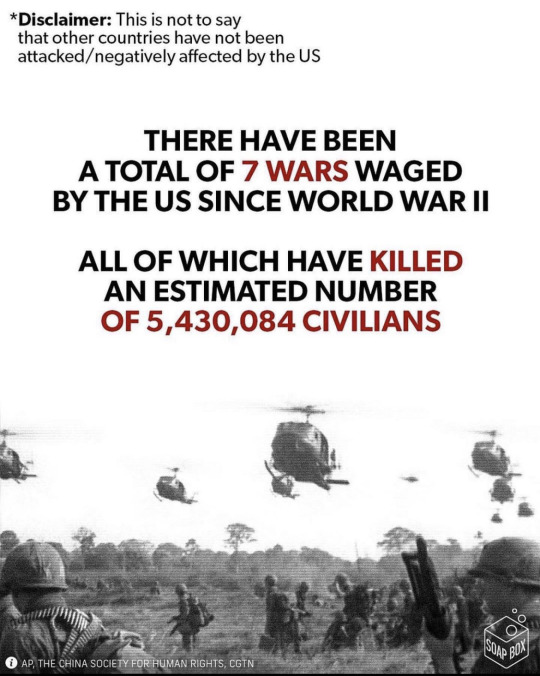
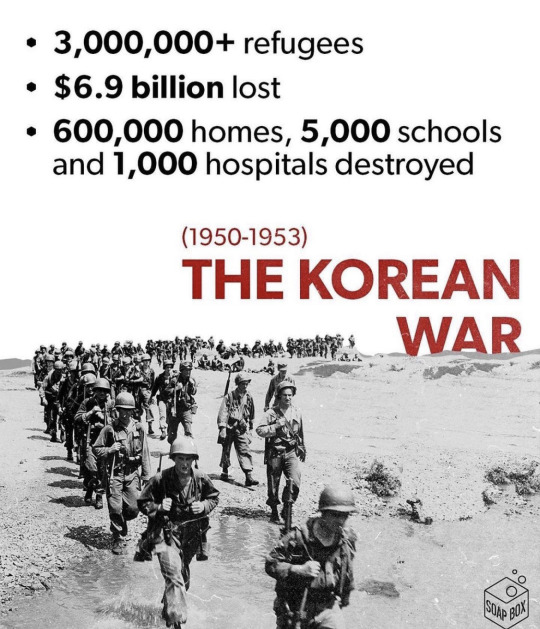
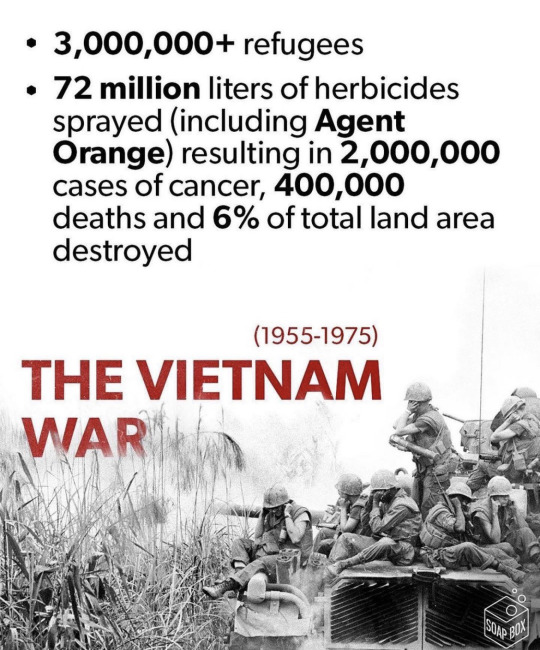
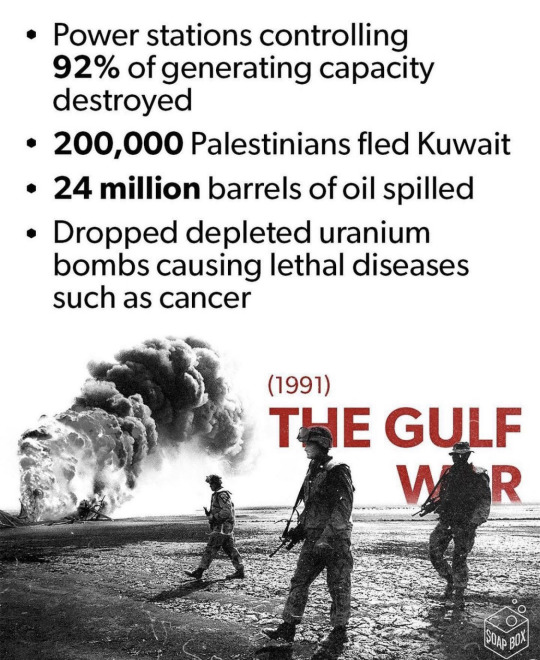
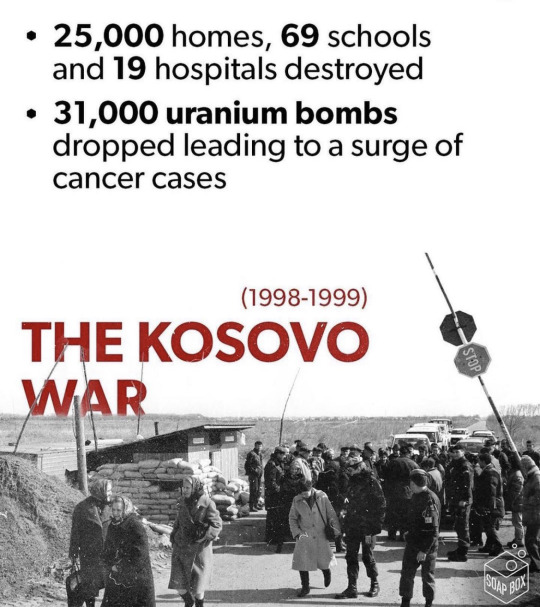
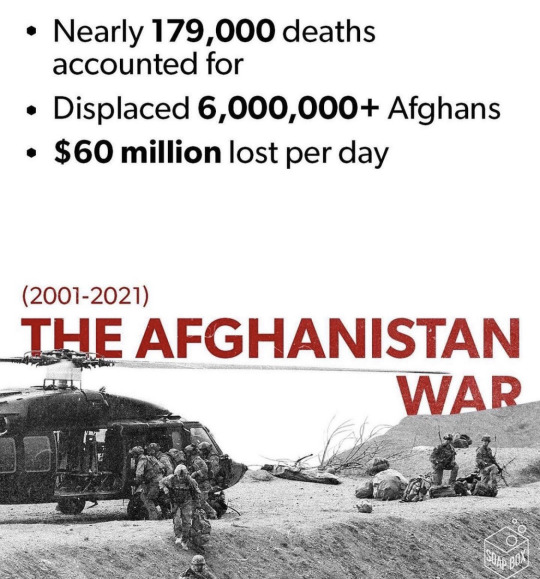
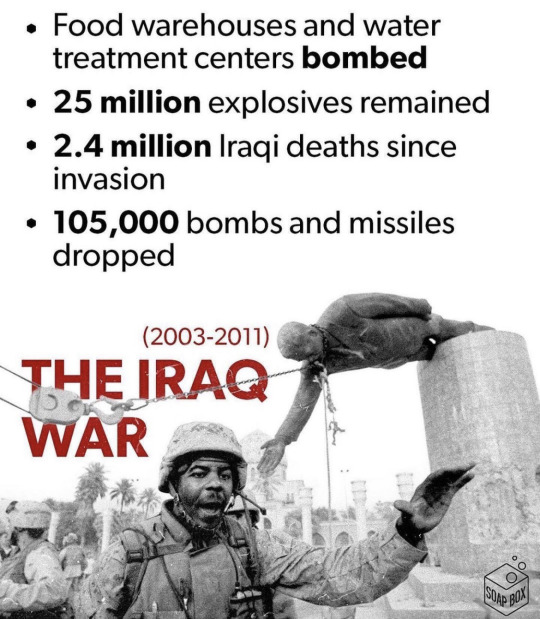

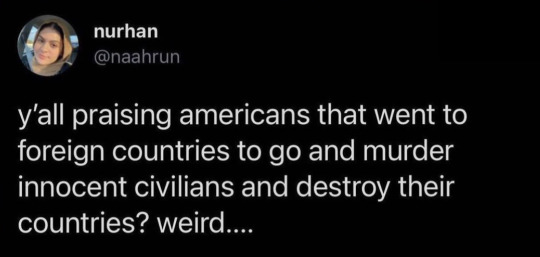
#us war monger#Korean war#vietnam war#gulf war#kosovo war#afghanistan war#iraq war#syrian war#veterans day#memorial day
56 notes
·
View notes
Text


2 notes
·
View notes
Text
Russian dictator Vladimir Putin claims to be "carefully studying" a peace plan. Of course, Ukrainian politicians have responded angrily. But even this misses the point.
Why has Putin repeatedly mentioned peace plans and negotiation recently? Because after 17 months of war, Russia has not only failed to win, but now has to fend off Ukrainian attacks around the occupied territories.
The Ukrainian counteroffensive is struggling, no doubt. And the Russians have resorted to obscene tactics in order to slow down Ukrainian progress: blowing up the Kakhovka Dam and backing out of the Turkey-backed graine deal.
All of this will not change the fact that Ukraine is encroaching on Russian-held areas, exposing Putin to the possibility of another shock defeat such as the chaotic expulsion of Russian soldiers from Kharkiv province last autumn.
In fact, the more obscene tactics Russia uses, the more energised the Ukrainian resistance. Many of us predicted this from the beginning. As I have said before, Putin has not read history properly: every previous attempt by Russia to rule over Ukraine has ended, either by war (the Russian Empire) or by popular vote (the Soviet Union).
Putin has to know by now, given the number of pro-Putin Russians who have been fired from his government or have suddenly died, that total victory in Ukraine is impossible. He has to have known this ever since Russian soldiers withdrew from around Kyiv last year, because he responded to that withdrawal by claiming that he had never intended to seize Kyiv, but was merely preparing for the 'real' battle in the Donbas.
This was a pathetic lie, of course, designed to save face. Putin had invested in an early victory by seizing the Ukrainian capital within five days. He totally failed, and that failure is obvious even to Russian propagandists.
Naturally, Putin cannot and will never admit to defeat, especially not the Soviet-style Afghanistan humiliation he has caused in Ukraine. His only option is to facilitate a withdrawal that allows him to save face and cast himself as a moderate who could have pursued the war, but instead chose peace. The only way for Putin to save face is to leave the conflict with Ukrainian guarantees not to join NATO (and possibly not the EU), and if possible, with recognition of the four Ukrainian provinces he annexed last year.
It may be that Putin hopes his peace plan talk will entice the international community to put pressure on Ukraine to end its counteroffensive in order to facilitate negotiations. If so, then such a gamble only demonstrates the Kremlin's concern about any possible Ukrainian gains and how these will be perceived among Putin's supporters.
As the war drags on, a stalemate and/or negotiation becomes increasingly likely. But Ukrainian adviser to the Head of Office for President Zelenskyy, Mykhailo Podolyak, claimed on Twitter that the Russians 'refuse to talk to us'.
It should be noted, however, that Zelenskyy himself closed down negotiations with Russia in around April last year, especially after the atrocities in Bucha, and later said that negotiations with Russia are impossible under the current "president".
(Despite fighting a blatantly totalitarian regime, Zelenskyy still referred to Putin as a "president" and claimed in an interview with the Washington Post last year that all or most Russians had voted for him, when Russian elections are just as fraudulent as the Russia-backed "referendums" in Crimea, Zaporizhzia, Donetsk, and Luhansk.)
Nonetheless, Zelenskyy is right to note that Russia must change politically, which is one of the demands that Podolyak noted as a Ukrainian condition for peace. Here they are in full: '1)- Get out of Ukraine; 2)- Change the political elite; 3)- Admit war crimes; 4)- Extradite the authors of the war to the tribunal.'
Of course, Ukraine's demands mean that Putin, his government and allies (Belarusian dictator Lukashenko) will have to be removed from power and put in front of of a war crimes tribunal (as well as much of the Russian army); he will have to confess to his war crimes, including the deliberate bombing of Ukrainian civilians and conspiracy to commit forced depopulation and deportation, and he will have to surrender all of the territory he has stolen from Ukraine since February 2014.
Sadly, it isn't likely that Putin will end up before a war crimes committee.
The recent attempted mutiny by Wagner Group terrorist Yevgeny Prigozhin, however serious the mutiny really was to the Kremlin, still indicates that Putin has many enemies in Russia. I doubt he would make it long enough out of power to be able to visit any tribunal, let alone the International Criminal Court. A foundational reason for Putin's continuance of this failed and outrageous war is to protect his power. Yes, this war is also about greed and imperialism, but even if neither of those two reasons existed, Putin would still have launched this war.
Dictators need war to survive. Putin wouldn't be in power today if it weren't for war. But war is the very means by which dictators have collapsed. Putin has gambled everything and has very little to show or himself so far. He therefore talks peace to save face and maintain legitimacy. Everyone who supports freedom should make it clear that Putin has none.
#ukraine#peace#peace plan#mykhailo podolyak#ukraine war#putin#vladimir putin#kremlin#ukraine counteroffensive#russian politics#russia blog#soviet union#afghanistan war#belarus#commentary
6 notes
·
View notes
Text
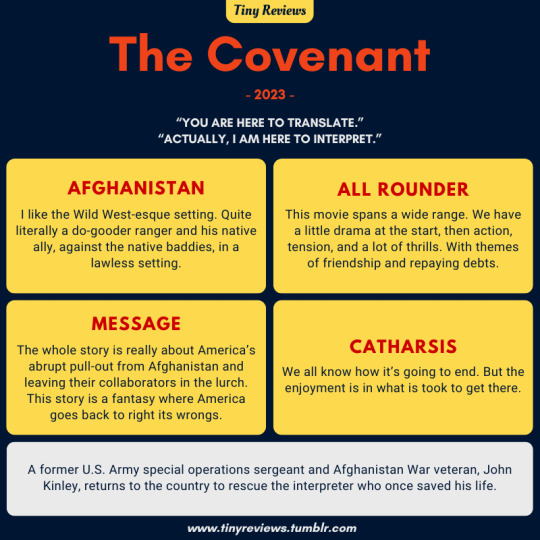
Ahmed’s wife and child, though just passive plot devices, really help ratchet up the stakes and tension.
Guy Ritchie's The Covenant (or simply The Covenant) is a 2023 American action thriller film co-written, produced and directed by Guy Ritchie. The film stars Jake Gyllenhaal and Dar Salim.
#the covenant#the covenant review#guy ritchie's the covenant#guy ritchie#jake gyllenhaal#dar salim#action thriller#afganistan#afghanistan war#movie review#2023#wild west
3 notes
·
View notes
Text
Two Decades and $90 Billion US Dollars Later: Dissecting The Afghan Military's Total Collapse
*SIGAR outlines a total lack of professional oversight on the ANDSF’s development and capabilities, which “prevented a clear picture of reality on the ground” from emerging to any relevant party before it was too late. This was no accident, though; the Afghan government and military, their trainers and the Pentagon alike were all heavily incentivized to lie to one another, and political leaders in Washington, who were in turn motivated to mislead the public and justify the enormous investment.
This deceit also conveniently obscured industrial-scale corruption and embezzlement within the ANDSF. As prior SIGAR reports also found, so much money and equipment were flowing into Afghanistan without any supervision whatsoever, and weaponry and other aid were misused, stolen or illegally sold off with ease by Afghans, U.S. personnel and Pentagon contractors.
SIGAR ominously warns that a similar absence of accountability is evident in the “unprecedented” U.S. arms shipments to Ukraine since Russia’s invasion on February 24, 2022.*
#us corruption#afghanistan war#corruption#political corruption#capitalism#neoliberal capitalism#neoliberalism#socialism#communism#marxism leninism#socialist politics#socialist news#working class politics#socialist#communist#marxism#marxist leninist#progressive politics#politics
4 notes
·
View notes
Photo

“THE FIRST WEEK OF THE WAR between Russia and Ukraine has presented to Americans something they have never seen before. It is not, as Thomas Friedman—that vaunted Sage of War who dispenses wisdom from the pages of the New York Times—has argued, the first time the “wired, globalized world” has seen war crimes covered on TikTok video and cellphones. This war is different for the United States because it is the first time that Americans and their NATO allies have been put in a position in which they identify with the little guy. Ukraine has, relatively speaking, a tiny military and a shoestring war chest; it has to make do and make the best of things.
This is not a matter of course for Americans. The first Bush administration brayed about “the liberation of Kuwait” in the first Gulf War thirty-one years ago, but everyone knew the United States was maneuvering against the power of Iraq. In the largest conflicts the world has seen in the 2000s, the invasions of Iraq and Afghanistan, America has been the aggressor, the side that drones and bombs and kills. In those wars, its “embedded” and garishly nationalistic reporters presented idealized visions of the conflict to gullible audiences back home. In the case of Afghanistan, the war the United States wrapped up less than a year ago, the moral narrative was all about saving Afghan women, who (white American feminists from Hillary Clinton to Madeleine Albright insisted) had to be saved from the barbarity and brutality of Afghan men. As in the colonizing narratives of old, the invasion was presented as necessary, not connected to any strategic interests of the United States, but of a larger benevolent project (“Operation Iraqi Freedom” in the second Gulf War) of bringing freedom and democracy to foreign lands. In the American imagination, they were not really aggressors, bombing another sovereign nation into the stone age, but magnanimous do-gooders trying to rid another diseased foreign land from its affliction.
Now the hegemon is Russia. It does not occur to any American pundit dissecting the Russian assault on Ukraine that those American actions appeared just as cruel and even befuddling as Russian actions seem today. Why would the Russians bomb a kindergarten, someone on Twitter asked the other day? Well, why did the American military bomb innocent civilians, including seven children, on the outskirts of Kabul just a few months ago? Just as Americans eagerly gobbled up the fictions of their own benevolent intentions, so, too, must Russians believe the line that is told to them. Theirs is a “peacekeeping” mission in Ukraine, one that is geared toward preventing the genocide of ethnic Russians in the Donbas and Luhansk region. Putin’s propaganda isn’t close to reality because the war propaganda of a hegemon never is.
Beyond the Western media bubble, the Muslim world that identified with Afghanistan and Iraq saw very different wars. When local Shia militias holed up in Fallujah in 2004 or Sadr City in 2008 and tried to fight using improvised explosive devices (IEDs), they were wholly renounced as extremists caught in the wrenches of political Islamism. The fact that they may have just been people who did not want their city and their country occupied by the United States was not an explanation you’d find in the mainstream media. Now, Ukrainians are engaged in a similar quest, arming themselves with whatever they can find and making scores of Molotov cocktails to throw at invading Russians. Pictures of Ukrainians towing captured Russian tanks with tractors to hand off to the Ukrainian military are going viral. Suddenly, the defense of a homeland from a hegemon is noble and worthy—because the hegemon is the enemy of the United States. It is not that the Ukrainian efforts are not heroic and courageous, it is just that the Afghan efforts were similarly valiant—in fact, they were seen as valiant when they were fighting the USSR in the 1980s, but less so when resisting American domination.
In order to get all the help that they can get, the Ukrainian president Volodymyr Zelensky has set up an international “legion” which will welcome any foreigner who wishes to fight for Ukraine. British media reported on at least one man who was eagerly signing up, despite the fact that he seemingly had no connection to the country whatsoever. The impetus was simply the desire to fight the good fight, to help the little guy. If anyone from the Muslim world tried to go and fight in Afghanistan, he was automatically deemed a terrorist interested not in any sort of anti-occupation struggle but in putting together another 9/11. That the 9/11 hijackers were not Afghan and there were no actual weapons of mass destruction in Iraq were details shelved away, just as the complete lack of provocation by Ukrainians likely escapes Russian minds with similar alacrity.
The migrant crisis caused by the Afghan war has already been forgotten. In contrast, Americans’ ardent lobbying of their political leaders to provide greater assistance for Ukrainians has led to a grant of TPS, “temporary protected status,” which allows those already here to stay without immigration penalties. No one really bothers to ask after the Afghans who had to flee mere months ago. Afghans—because they are Brown and Muslim and suspect—were never granted TPS. Even the limited programs created to admit Afghans who quite literally helped the American military effort have been duly criticized by the American right. Perhaps that is how the Russians will treat Ukrainian translators that they will employ once they are done with the invasion and have moved on to the occupation.
Human connection, care, and concern are wonderful feelings which sustain humanity. Ukraine deserves all the empathy we can provide, but empathy is not a zero-sum game, and the lessons of the present can and should change American interpretations of the past. For decades, some Europeans imagined that they had evolved beyond war, that their evolved humanity had arrived at an epoch where the garishness of armed conflict was simply impossible. As Afghans and Iraqis could have told anyone who cared to ask, there has been no giant leap in human evolution; war is still grisly, bombs still kill, and babies are born nevertheless in subway stations in Kyiv and tiny village hovels in Helmand.
Americans were taught not to care and Russians are likely receiving a similar education. To allow its drones to kill anyone America deemed threatening, officials made the case that drone operators could distinguish between “enemy combatants” and civilians. Millions of suspect Iraqis, Afghans, and others were suddenly fair targets for the American war machine. Hegemons create such absolutions, and they can be applied to Ukrainian or Iraqis or Afghans alike. When baffled Americans consider the inhumanity of Russian actions, they must remember this and say to themselves we, too, did this; we, too, were cruel; we, too, didn’t care.
We are at a place in world history where a fascist Russia led by a megalomaniacal dictator is threatening a non-aggressing country—as well as, through his threats to use nuclear weapons, the world population near and far. We need the international order, the UN, the International Criminal Court. The United States and Russia cannot be compared: one is a constitutional liberal democracy and the other a cruel dictatorship where dissenters are jailed, poisoned, or killed. Bringing up American sins in Afghanistan and Iraq highlights how the world’s only superpower violated and weakened the very international order that we need to save us from nuclear cataclysm.
One small way to amend the harms of the past is to acknowledge them, to push the United States to immediately become a signatory to the International Criminal Court, to assist Ukrainians in any way that is possible. We have not done what we should have to promote international law and peace, but we do not have to be prisoners of the past. We can move beyond that and do better now.
- Rafia Zakaria, “Not-So-Great Powers.” The Baffler. March 4, 2022.
Picture: Russian soldiers, Moscow, 2017. | Dave's archive 1, via Flickr
#rafia zakaria#russia-ukraine war 2022#iraq war#afghanistan war#war on terror#great powers#modern warfare#imperialist war
3 notes
·
View notes
Link
0 notes